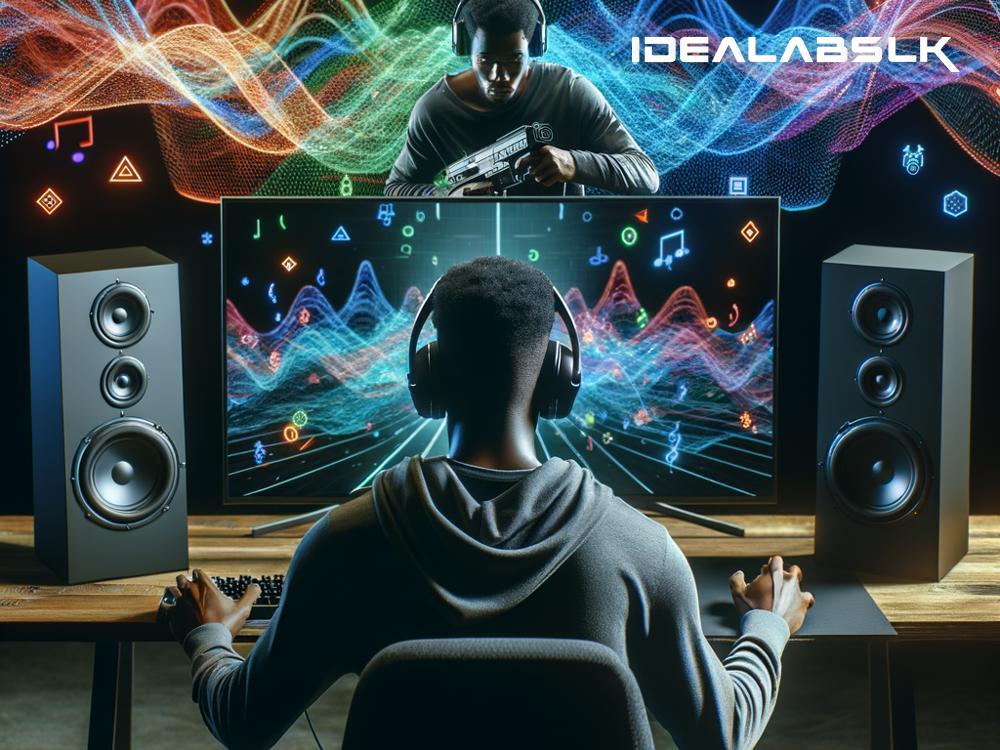AI and Dynamic Soundscapes: The Future of Game Soundtracks in 2025
In the world of video games, soundtracks have always played a crucial role in creating immersive and thrilling experiences for players. But imagine stepping into a game where the music changes and adapts based on your every move. That’s the promise of the future - particularly as we look towards 2025 and the rise of AI in creating dynamic soundscapes. Let's dive into how game soundtracks will respond to player actions in just a couple of years.
What are Dynamic Soundscapes?
Before we get ahead of ourselves, let’s break down what we mean by "dynamic soundscapes". Traditionally, video game music has been composed of static tracks that play regardless of what's happening in the game. Dynamic soundscapes, however, are all about crafting an audio experience that changes and evolves based on the player's actions and the game's events. It's like having a soundtrack that reads your mind and reacts to your choices, making the game feel more alive and personalized.
The Role of AI
Enter Artificial Intelligence (AI), the game-changer in making dynamic soundscapes not just a reality, but a spectacular one. AI algorithms can analyze how players interact with the game in real-time, understanding whether you’re exploring quietly, engaging in a fierce battle, or solving puzzles. It can then alter the music to match the mood, intensity, and pace of these situations, creating a seamless and adaptable audio experience.
The Magic of 2025
By 2025, the integration of AI in video game development is expected to have matured substantially, bringing dynamic soundscapes to the forefront of gaming experiences. Here’s a glimpse into how this could change the way we play games:
1. Personalized Audio Journeys
Imagine a game that knows you love tense, edge-of-your-seat moments. The AI could ramp up suspenseful music whenever you’re in danger or nearing a game's climax. Conversely, if you're more about exploration, the soundtrack could feature calming and expansive musical scores that encourage you to wander and discover.
2. Reactive Game Worlds
The game environments themselves could react to the dynamic soundscapes. In a horror game, for example, as the music builds up to a terrifying crescendo, the shadows might darken, and unseen threats could seem to draw closer. This synergy between sound and visuals can greatly enhance the atmospheric pressure, making for a truly spine-chilling experience.
3. Immersive Storytelling
Dynamic soundscapes allow for more nuanced storytelling. Music can change tonally to reflect the complexities of the narrative, such as shifting subtly to hint at a character’s true intentions or to foreshadow upcoming events. This level of detail can make the story more engaging and emotionally resonant.
4. Adaptive Difficulty Levels
AI-driven music can also cater to different player skills and preferences regarding game difficulty. For players struggling with a particular section, the game could switch to more calming music to reduce frustration. Conversely, for those seeking a challenge, the soundtrack can become more intense and urgent, increasing the sense of difficulty and achievement.
5. Reflecting Player Choices
In games where choices matter, the soundtrack can reflect the consequences of your decisions. Choosing a darker path might lead to a more ominous or discordant soundtrack, whereas noble choices could be accompanied by uplifting and hopeful tunes. This not only makes your decisions feel impactful but also adds layers of depth to the gameplay experience.
Looking Ahead
As we look towards the future, it’s clear that AI and dynamic soundscapes will revolutionize the immersive qualities of video games. The technology promises to create not just a game you play but a world you live in, where every step, decision, and action is mirrored in the shifting sands of its soundtrack.
Game developers and composers are already exploring these possibilities, crafting more complex and responsive audio experiences. So, as we edge closer to 2025, one thing is certain: the games we play are going to become more personal, immersive, and responsive than ever before, thanks in no small part to the magic of AI-driven dynamic soundscapes.
As gamers and enthusiasts, we have a thrilling journey ahead. The future of game soundtracks is dynamic, responsive, and, most importantly, tailor-made for every player. So, let's gear up for an exciting new chapter in gaming history - one where the music isn't just heard but felt and experienced in a whole new way.

